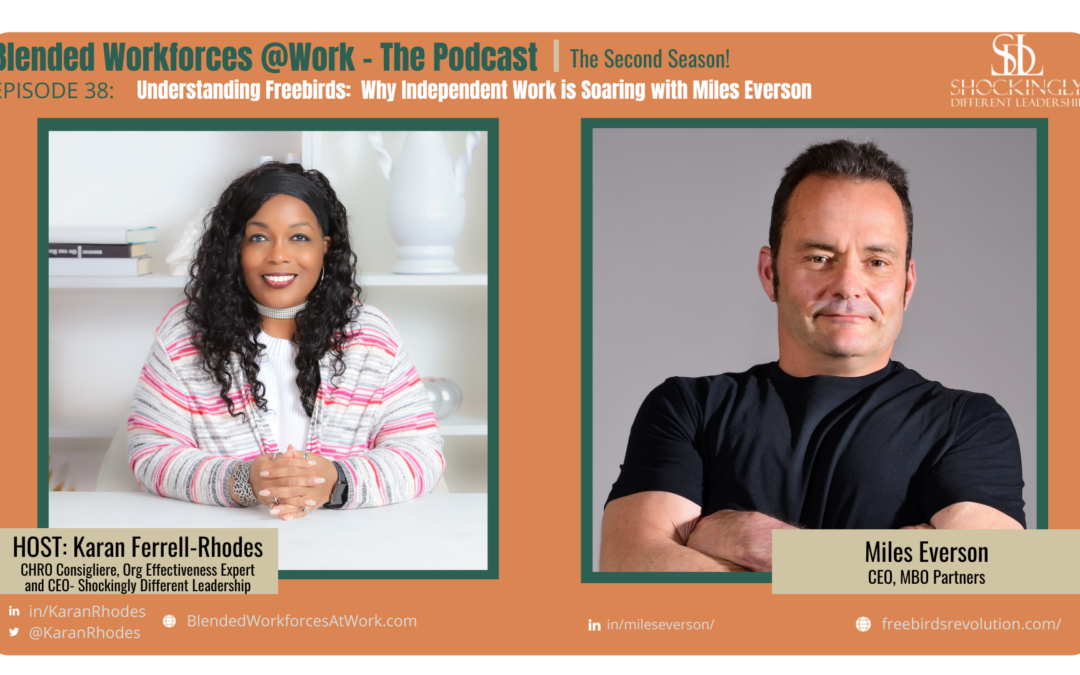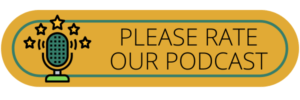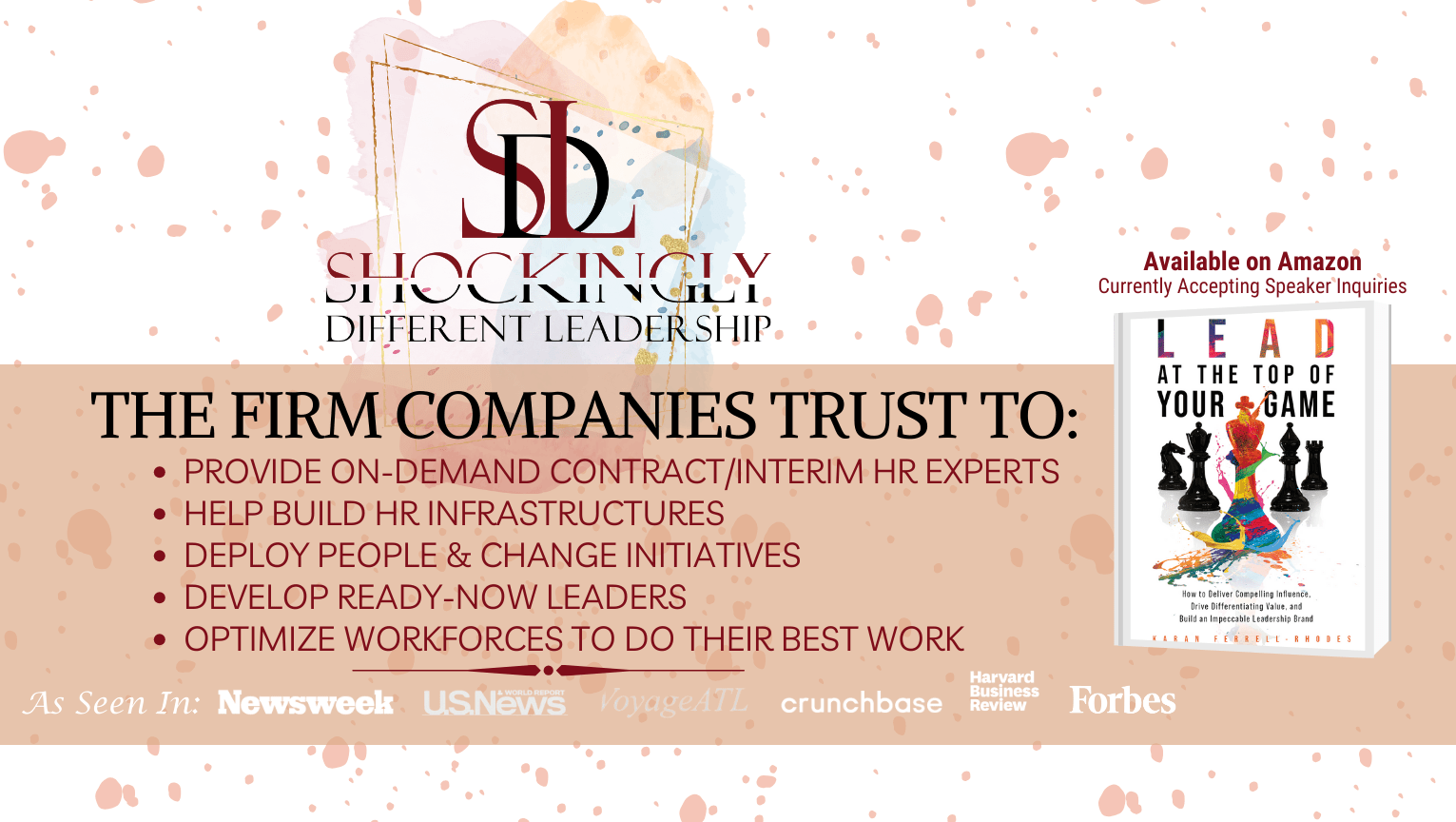IN THIS EPISODE, KARAN FERRELL-RHODES INTERVIEWS MILES EVERSON.
Miles introduces the “Free Birds” concept, emphasizing independent thinking and authenticity in today’s workforce. He highlights independent professionals’ challenges, such as regulatory issues, and advocates for a more flexible workforce. Additionally, he discusses the importance of integrating external talent into organizations and introduces “courageous agility” as a key trait for success in an ever-changing professional landscape.
Miles Everson is the CEO of MBO Partners, a service supporting independent professionals. The company’s offerings, including worker classification, direct sourcing, and administrative support. He is also the author of Free Birds Revolution: The Future of Work & the Independent Mind.
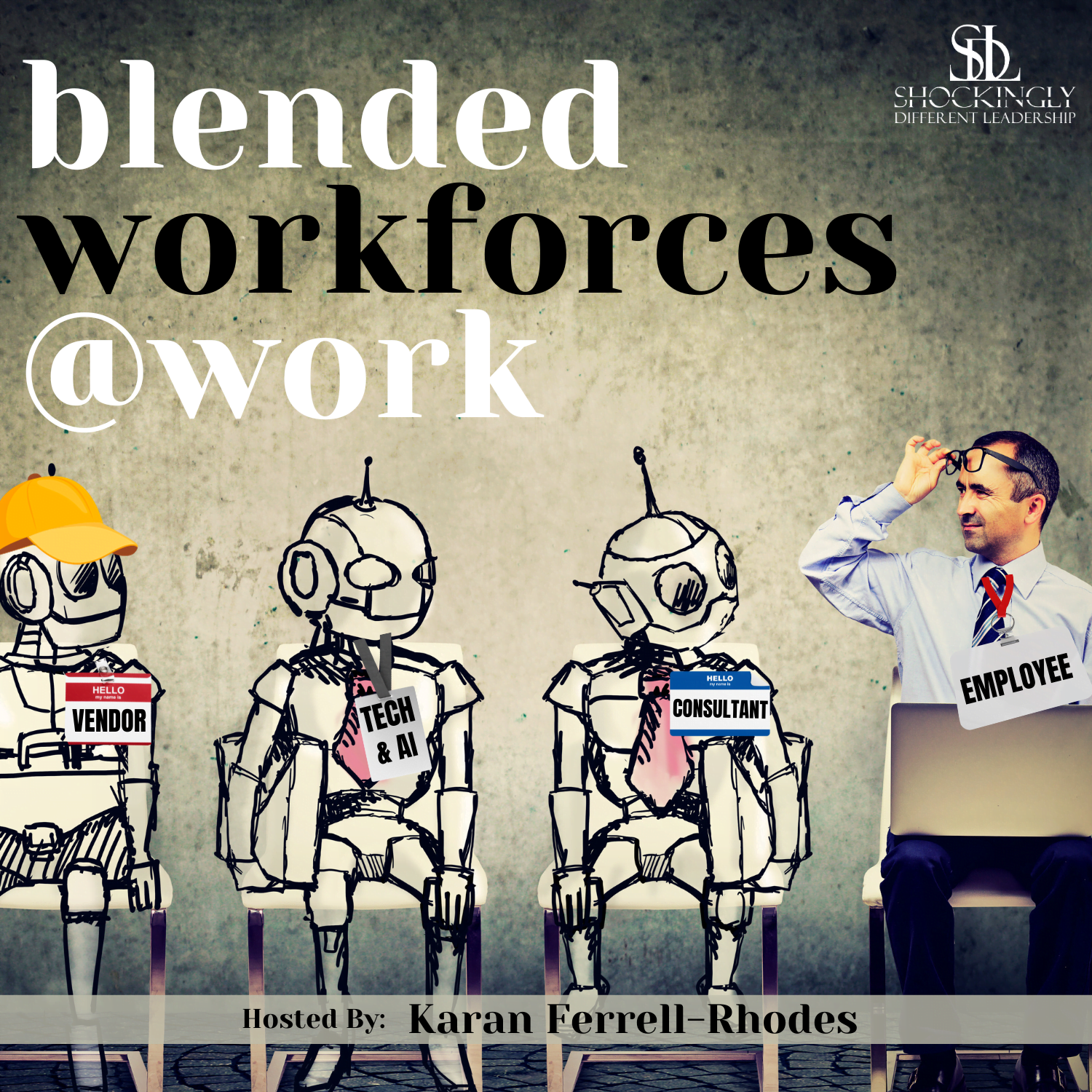
Posted by
SDL Media Team
Rather view our video podcast?

WHAT TO LISTEN FOR:
- What services do MBO Partners provide for independent professionals?
- How has MBO Partners evolved since its inception?
- What industries and backgrounds do the independent professionals MBO Partners serve come from?
- What is the “Free Birds” concept, and how does it relate to independent thinking?
- Why is authenticity and vulnerability important in the age of social media?
- What challenges do independent professionals face in the current regulatory system?
- How can companies benefit from embracing independent thinkers?
- What skills are essential for success as an independent professional?
- How can companies create a welcoming environment for independent professionals?
- What is courageous agility, and why is it necessary for leaders?
“The best independents get to choose who their clients are.”
FEATURED TIMESTAMPS:
[02:42] Miles’ Life Outside Work
[03:54] Professional Background and Journey to MBO Partners
[05:38] MBO Partners’ Services and Market Focus
[12:35] Signature Segment: Miles’ entry into the LATTOYG Playbook : The Concept of “Free Birds” and Independent Mindset
[15:17] Challenges and Opportunities in the Independent Workforce
[22:56] Building Long-Term Relationships with External Talent
[27:58] Signature Segment: Miles’ LATTOYG Tactic of Choice: Leading with Courageous Agility
[29:19] Contact Information

ABOUT MILES EVERSON:
Miles Everson is the CEO of MBO Partners, the definitive market leader in enabling the future of work and improving the well-being of professionals and businesses worldwide. Before joining MBO, Everson had a rich career with PwC, which lasted almost three decades.
Everson has worked with many of the world’s largest and most prominent organizations, specializing in executive management. He helps companies balance growth, reduce risk, maximize return, and excel in strategic business priorities.
LINKS FOR MILES:
- Website: mbopartners.com/
- Freebird Website: freebirdsrevolution.com/
- LinkedIn: linkedin.com/in/mileseverson/
- Miles’ Book Free Birds Revolution: The Future of Work & the Independent Mind: https://a.co/d/1BydwQH
PEOPLE & RESOURCES MENTIONED:
- Gallup Builder Profile Assessment: https://store.gallup.com/p/en-us/10245/builder-profile-10?c=3
ADDITIONAL RESOURCES FOR YOU:


Episode Sponsor
SDL is the go-to firm companies trust when needing to:
- supplement their in-house HR teams with contract or interim HR experts
- implement leadership development programs that demonstrate an immediate ROI and impact on the business

Episode 38 | Understanding Freebirds: Why Independent Work is Soaring with Miles Everson
Miles Everson 00:00
So everyone says, “Well, I’m going to hire diverse people, et cetera, et cetera.” And then the first thing they do is they send them to a six or eight week training program to tell them that this is how we think at this company. Okay, so I want to hire you from a heterogeneous perspective, but I want you to all kind of basically move towards a homogeneous spot. I just think it’s wrong,
Karan Rhodes 00:03
Blended workforces are one of the hottest talent strategies today, where employers are using a mix of traditional employees with external resources like independent contractors, coaches, consultants, vendors, and technology solutions, all in order to enhance competitiveness, ensure cost flexibility, and expedite business goals. But how are the successful companies infusing blended workforces into their business strategy? And what are the critical success factors and pitfalls to avoid during implementation? And on the flip side, what does it really take for suppliers to improve their chances of finding and landing contract opportunities? The devil is in the details, my friends! I’m your host, Karan Ferrell Rhodes, and it’s time to get smarter about Blended Workforces at Work!Hello, my superstars. This is Karan, and welcome to another episode of the blended workforces at work podcast. On today’s show, we have an absolutely fantastic guest for you today. We are so thrilled to feature miles Everson, who is an independent thinker and business builder, and he’s also currently the CEO of MBO partners. And MBO Partners is a direct sourcing platform that enables enterprises and independent workers to work efficiently together, and he’s going to tell us a lot more about the great work that they’re doing. But Miles is also the author of the new book called Free Birds revolution. I want to make sure I got that right Free Birds revolution, and the subheading is the future of work and the independent mind. So welcome to the podcast. Miles.
Miles Everson 01:44
Well, thanks, Karan, it’s my pleasure to be here. You’re very gracious. So thank you.
Karan Rhodes 01:47
Oh, we are just absolutely thrilled to have you. I can’t wait to dig in a bit more about MBO partners, but definitely want to understand more about your book and the lessons learn out of there and share those with our audience members. But before we delve into the good stuff, we want some other good stuff, if we can. So we always love to know just a tad bit about our guests and their life outside of work. So would you mind sharing just a few insights with us?
Miles Everson 02:20
Yeah, I’m happy to so I’m kind of living my best life. Frankly, I’m in Austin, Texas, live right on Lady Bird Lake, and so I spent a lot of time out in the in nature, around the lake here. And then, kind of my thing is a bit of biohacking, or at least health. It’s not all biohacking, but I’m into health, and that’s my passion right now is I want to be healthy till the minute before I die.
Karan Rhodes 02:44
And we want that for you, too. And I want that as well. Love it.
Miles Everson 02:49
Yeah.
Karan Rhodes 02:50
Oh, fantastic. Well, I will say Austin is beautiful. It can get hot in the summer,
Miles Everson 02:56
Yes it can!
Karan Rhodes 02:57
But it is beautiful. I was just attending a wedding a few months ago in Austin. It was absolutely gorgeous, so I’m kind of envious of you all during the good weather.
Miles Everson 03:07
Yeah, it’s the July and August get a little dicey…
Karan Rhodes 03:10
Wooo! Let me tell you,Well, fantastic. Well, let’s go ahead and get started on, you know, our conversations and before we you spend the bulk of our time on the book, I would love for you to share at a high level with our audience your professional background thus far and what brought you to MBO partners and what you all do.
Miles Everson 03:31
Yeah, so I spent 32 years at a firm Price Waterhouse Coopers, and when I was there, I was in the consulting business, and ultimately I was the global CEO of our deals and consulting businesses. And so you get to work with a lot of really bright minds and, frankly, independent thinkers and so great clients. And I was a client service person at heart, and then they asked me to take on these leadership jobs to help other people be successful, which that’s a whole nother story, but that when I was in one of those roles in the US, is when I came across the importance of embracing independent minded people and professionals to help achieve our organization’s objectives. And so that’s how I got to know MBO partners. Frankly, was when I was doing that, I didn’t know what it was at the time, to be frank, but I started a direct sourcing platform. I just was called the Talent Exchange. It still is today.
Karan Rhodes 04:24
Oh, wow.
Miles Everson 04:25
And I was just trying to match great people with great projects, and doing that in a way that was good for them in a room. And when I decided to retire, retire at 54 right from PwC, and I met with Gene Zaino, the founder of MBO partners, and he just said, why don’t you come here and, you know, do another 100 or 1000 times what you did before, and, you know, have some fun doing it. So, you know, five years later, here I am, and I’m I’m loving it. So
Karan Rhodes 04:51
Wow.
Miles Everson 04:52
Yeah,
Karan Rhodes 04:52
What a great story. What a great fit, because you had such expertise and astuteness in that area experience, and then to be able. To bring it to a new organization. Your expertise, as well as as you’ve written the book, give insights into the power of an independent thinking, thinkers, I think that’s just amazing, absolutely amazing.
Miles Everson 05:15
Yeah, and I mean it, I would say we weren’t the earliest, but we would have been early adopters of the blended workforce, right? Like, how do you think about technology and your workforce beyond your full time? W2 employees, that’s right, to bring the best resources available on the planet to solve problems and capture opportunities. And that’s, frankly, what we did. It was no more complicated than that, easier to say than do, but we did it. So
Karan Rhodes 05:38
I know it’s not very complicated. Now, I’ll be honest with you, back when I was working at Microsoft, we were doing that already without a formal name or movement behind it. You know, wasn’t written up in Fortune or Inc or financial time, but we were operating in that and I was that person that they always tapped on for special projects and big things, infrastructure type of things we were doing. And I naturally got to work, you know, with independents who were experts in certain areas of expertise. And I thought it made a fantastic team to have your internal folks and external folks and technologies working together. But it seems to be so revolutionary. Now, I’m not sure why, but,
Miles Everson 06:23
Well, you know, I think one of the things you know, is companies like Microsoft and other leading tech companies were kind of the culture, the DNA, if you will, of the company had to be to break glass in terms of thinking about doing things differently, yeah. And so you just kind of get the whole correlation of a management mindset, etc, that says, Well, maybe we can see the possible and do something different than the way everyone else has always done. Because tech companies are kind of leaders in the use of independent professionals. They have been for decades. Frankly,
Karan Rhodes 06:52
They sure are. Well, tell us a little bit more about MBO partners, like, who’s your target market? What are the expertise in industries you work in, is it all above? Give us a little bit more information about clients you, sir.
Miles Everson 07:06
So I’m going to take this just a little bit. I think it’s really interesting for your audience. But
Karan Rhodes 07:10
Ok…yea!
Miles Everson 07:10
So, so MBO partners stands for originally was my business office. So Gene Gano, the founder, in 1995 he wanted to set up. And did set up. Think of it as the administrative offices for an independent professional consultant at the time. So all their taxes, their wet, you know, they needed a website, their marketing materials, all that kind of stuff. And then one day he had a client call a company, and they said, Who are you? Because we’re getting all these invoices with your logo on it from our independent professionals, right? Because he was helping them run their business, because all these, yeah, their back office, all they wanted to do was do what they’re good at. That’s part of the reason they were independents. They didn’t want all the administrative kind of stuff that comes with operating inside a company. And so, you know, kind of a light bulb went off, as it does often with entrepreneurs, and he said, Well, I should go sell this service to enterprises. And so he sold the service being I will help your extended workforce. I independents be properly classified and set up the right company so they’re compliant as either 1090 nines. And if they’re not, then there’ll be a w2 and I’ll put them in my payroll company and take care of them. But you can, you can have ready access to independence. And that’s how he then he switched it from my business office to MBO partners. And that’s why I found him. Originally, was, I was looking for somebody to do the worker classification for me to make sure it was done right. And when I went out and you know, did all my search with the legal community, they said, well, the gold standard is MBO partners. So that’s, that’s how we got to Gene and then when I came I said, Well, you know, we’re doing this thing, the Talent Exchange, the front end, which most people and I would call direct sourcing. And so why don’t we think about how we do those two things, classification work, and that front end, direct sourcing at the same time. And so that’s what we’ve been doing, and it’s just a really rich complement of services so companies can take control of accessing more resources than what they otherwise might be able to get to.
Karan Rhodes 09:06
Oh, that’s amazing. And are there certain backgrounds or industries that seem to be naturally drawn to you, like those independents, or?
Miles Everson 09:15
So it’s about, it’s about a third of our independents are somewhere associated with technology projects.
Karan Rhodes 09:21
I can imagine
Miles Everson 09:22
Right. Another third are associated, more like with professional accounting,
Karan Rhodes 09:29
Professional services?
Miles Everson 09:30
Yeah, professional services. And then you have another third that can be anywhere from executive coaches to, you know, people that will do marketing. We have some we don’t really specialize in the fractional, you know, CXO, but we have people that do that, yeah? Because the I would say that the most successful independent. So when I say independence, I’m thinking of people that make 100,000 or more a year, doing their thing, right? Yeah? Most of them have, like, a half dozen clients that they rotate because. Train from year to year, right? So, you know, it’s not just they’re not beholden to one company, but they’re also not serving 100 different companies. That’s rare, right? So, so yeah, it’s we take care of their administration, and they can go do the work they love. Our purpose is to help people do the work they love the way they want. And that’s what we get up and try to do every day. Frankly.
Karan Rhodes 10:19
That’s amazing. And you know, you pick your research study or your research group, and almost all of them have, you know, projected even more independent workers taking a larger share of the workforce as we move forward. You know, definitely in the next three to five years, but there’s already a significant amount that are doing it right now anyway. So this is going to continue to grow based on what people are projecting.
Miles Everson 10:46
Yes. So we have the longest we I mean, Gene did it. I came into it. But MBO has the longest running research study, primary research study of independence in the United States. And it’s 15 years now that this has been going on. Oh, wow. So we got mounds and mounds of data on what makes independent successful, how they think, how companies think about it. But right now, when we did it last fall, there’s 72 million Americans that are working as independent professionals. So you compare that to the US w2 workforce, which is about 159 million people. The difference is that full time workforce, non farm labor, is growing at about 1.2 1.3% a year, and the independent workforce is growing at 6.3% a year, so it’s demonstrably higher growth than the full time workforce. And yeah, we’re we view ourselves as just helping enable people do what they want to do and how they you know, when I’m really simple, it’s helping people figure out how they feed their family in a different way than being a full time w2. It’s no more complicated than that.
Karan Rhodes 11:49
And it’s amazing. Wow. Well, I could talk about what you all are doing all day, because, you know, I’m a studier of blended workforces, but I want to make sure we have plenty of time to talk about your book, which, again, is Free Birds Revolution, the Future of Work and the Independent Mind. So can you share with us what drove you to write the book, and maybe share a few tips or ideas that do come from the book with us.
Miles Everson 12:12
Yeah, yeah. I can talk forever, so I’m going to take breaks.
Karan Rhodes 12:16
Ok!
Miles Everson 12:17
So I think the first thing is kind of what is a free bird, and that’s why I think about it. And so I think of a free bird as somebody who is unapologetically authentic, and they’re independent minded. And being authentic doesn’t mean you’re rude, it means you really understand who you are, because the authentic people that really know who they are are the ones that, I would argue are happy, and they’re effective, independent providers, right? And part of what got me going on this was I saw it just in the people that I worked with, but also, I think, in the age of social media and people projecting who they think they should be out, I can’t think of a phrase that’s more inappropriate than the one that says perception is reality, because perception is reality for everybody except the person that knows that perception is false, right? That’s true, right? It would be a horrible way to go through life not being authentic and pretending you’re somebody you’re not. So part of the behind Free Birds was to say, look, not only is it okay, it’s desirable to be highly authentic, but to do that, you got to be vulnerable. You’re going to have people that don’t agree with you. They’re going to think what you’re doing is foolish or silly or, you know, and that you just have to be okay with that. And if you do that, you’ll find your stride and be successful, right? And so I went after that, and I think you also have to be independent minded. When I say independent minded, I don’t think people trust central authorities anymore, okay? And this is not a point because of the erosion of trust, yeah? And it’s not a political statement. It’s a it’s a societal it doesn’t matter politics like so what I mean by that is, who goes, and if they’re going to go to a restaurant, goes to a central food critic to see if it’s good food. Nobody does. You go to Yelp? Yeah, or you go to other reviews. And then I kind of step back and I say, Well, who trusts big banks, who trust Big Pharma, who trust big platforms, who trust big government, basically nobody. You trust your peers more than you trust central authorities. To do that, you have to be independent minded, which means you’re curious. You do your own research. You learn. You don’t just you know, you trust, but verify you like you form your own view. You don’t just say, well, the news said this, or the central authority said that. So therefore it is right you you challenge it, and you know in a respectful way, of course, but you form your own views. After you’ve done that, you scratch head curiosity itch. So that’s how I think about it.
Karan Rhodes 14:43
And so you’re in the book, you’re advocating for more independent thinking, or are you trying to help people understand how to embrace independent thinkers? Or both?
Miles Everson 14:55
It’s both, and I’m encouraging people to embrace being an independent thinker and being a. Authentic as the for the individual and for companies to embrace a workforce where you have independent thinkers in the workforce. So think about this like we both worked in companies. So everyone says, Well, I’m going to hire diverse people, et cetera, et cetera, right? And then the first thing they do is they send them to a six or eight week training program to tell them that this is how we think at this company, right? Don’t, yeah. Like, so I want to hire you from a heterogeneous perspective, but I want you to all kind of basically move towards a homogeneous spot. I just think it’s wrong, okay? Like, I don’t think you get the best talent doing that, and I don’t think you get the best answer for creating value and creating great, rewarding careers for people by doing that. So that’s part of it, right? And then the other piece that I talk about in the book is I call for a change in the social contract, because the social contract, what I mean by that is that the regulatory system around work has effectively deputized companies to collect information, taxes, etc, on behalf of the employee, and if they’re not classifying them right, the government goes after the company instead of the employee, right? And I think that’s wrong. I’m a big advocate for individual choice on all matter, including the choice of how I contract and get treated when I want to go feed my family and create economic flows to do that. So I think it’s great that companies and employees have the right to organize and form unions, so that when the big corporates picking on the little guy, they can they have some power against them. But I don’t think I should automatically be told that, because I’m going to exchange my time and knowledge, I have to be classified as a w2 employee. I think I should be able to be classified however I want to operate as an as an individual, and so I just think we have an antiquated system, and that needs to change. It’s very complicated. There’s federal rules layered with state rules and like, it’s hard to navigate. And what’s interesting, Karan, I’m advocating for this, and I make a bunch of money today at MBO by being the guy that figures out how to do the classification, but I think what’s right for America and right for families is to make it easier. And I propose solutions in the book that you know, whatever the solution is will be different than what I propose, but I’m trying to get a little bit more energy and movement behind we can do better for Americans on this topic in terms of how they feed their families.
Karan Rhodes 17:18
And I agree with you. We absolutely can it to your point, it will take a major shift in thinking the company strategies, thinking, lining up regulations behind it, but it can be done. It might take a minute to evolve. It will, but it can be done, and it can open up a lot of, in my opinion, a lot of opportunity for both companies and the worker, because the agility alone can enhance both sides. It can be a win win.
Miles Everson 17:48
There’s no question. There can be a win win. Almost always when you give people the freedom, or to be a free bird, the ability to do what they really want, and you make the system facilitates that, yeah, you just get great outcomes. I mean, absolutely. Well, I was just going to say, you know, I often get asked kind of a question around, well, what does it take to be successful, independent? I was at work, and there’s lots of what I’ll say, functional, technical aspects to it, but I kind of boiled this down to three things. The first one I’ve touched on right, which is, you got to find your soul like, who are you? Don’t worry about what other people think of you. Get comfortable being you okay. And comfortable means you’re comfortable with vulnerability. And then the second is, you know, because I get asked by parents and stuff like, what should what degree should I tell my kids to go get I said, the best thing they can learn is to learn how to be curious, how to learn and apply. There’s one thing I can tell you, whatever they think they’re going to do when they’re 20 years old, or 25 or 28 years old, they will do five to 10, maybe 20 different things after that.
Karan Rhodes 18:49
That’s right, I was going to add pivot to that. So learn, apply and pivot.
Miles Everson 18:53
Yeah, and pivot. That’s had a great add to it, right? So if you learn how to do that, and we might be losing that a little bit in the search world, right? Where I don’t have to learn, I just ask a question and it tells me the answer, right? So I do get concerned about little bit like, are you really developing the critical thinking skills that are necessary to do an informed pivot, to pick up on on what you’re saying, right? And then the last thing is, you have to embrace uncertainty. I talk about trends in the book, and one of the trends I talk about is everyone knows that change is constant, but the rate of change is accelerating, irrefutable that it’s accelerating. And so by definition, the faster things change, the more uncertainty that will exist around you. So you really need to learn how to cope with and embrace uncertainty in order to be as successful. I don’t think it’s just independent. You certainly needed to be successful independent. But I would argue, to just be successful period, you need to embrace uncertainty, and it’s just so it’s so critical, in my mind, on those you know, what’s it take to be successful independent? So
Karan Rhodes 19:52
I agree, and you know, I’ve made the transition. This is our 10th anniversary of our firm, and I made the transition after. 20 plus years in corporate. Similar to you,
Miles Everson 20:02
Similar, yeah.
Karan Rhodes 20:04
But I love the entrepreneurial life, so it’s well suited. But I gotta say, a lot of people leave corporate and hang a shingle, but they don’t have the It’s a wild wild west out there. Honestly. I mean, there’s some that are very competent in building and running businesses, and some that are really struggling, just pop the website, and then they’re struggling with, you know, what to do next. So I wish there was more. I mean, they have people you know, that help train how to start a business, but it’s deeper than that, and I wish there was more of a skill development, or up skilling for independence.
Miles Everson 20:41
We’ll do that with through Free Birds is start to help. And by the way, you and I didn’t talk about this beforehand, but we will do that to help kill people to be more successful as independents, but
Karan Rhodes 20:50
Great minds think alike, Miles.
Miles Everson 20:53
I make no money on what I’m about to say.
Karan Rhodes 20:54
Okay.
Miles Everson 20:55
But I believe that anybody that’s kind of exploring whether they should be an independent they should go to Gallup’s website, and they should take the assessment that is called Business Builder. Yeah, they have Strength Finders. That’s one thing, but the business builder is an assessment, and it will tell you if you’ve got the attributes of what it takes to be a successful business builder. And at a minimum, it’s going to tell you where you might need to complement your own skills and capabilities to be successful. I don’t know what it costs, like 50 bucks or something. It’s not cost prohibitive. And you’ll get a good read on whether you should be a business builder, and if so, what kind of a builder you will be. I think it’s fairly well known that many, many great companies have been built by somebody that is very strategic, and somebody that is an operator, right? You need the glass breaker, and you need the operator Absolutely. I don’t think that’s a secret.
Karan Rhodes 21:51
Not at all, not at all. And listeners look at that link, and we’ll have that in the show notes. So definitely take advantage of the Gallup assessment as well. I’m very familiar with it, but I’ll get make sure those links, that link is in the show notes as well.
Miles Everson 22:04
Great.
Karan Rhodes 22:04
Yeah, sorry to cut you off. Miles.
Miles Everson 22:06
No, it’s fine. It’s free advice. And like I said, I make no money on it.
Karan Rhodes 22:10
That’s a great resource. You’re absolutely right. So I’m curious if you have any thoughts or suggestions on how companies can build better, longer term relationships with external talent, or the concept of blended workforces. Like, is it? If there’s one thing you wanted to leave leaders with, what would that be?
Miles Everson 22:34
Well, yeah, so the first thing I would say is you got to shift your mindset. If you’re in a corporation, you need to view that you want to become a client of choice to the independent too many organizations, I’m not saying all, but too many organizations view that an independent professional. They’re doing it to manage rate and risk, and it’s just a transaction, right? And the best independents get to choose who their clients are. They don’t have to just take what comes over the transom. So if you want great independents to work for you, you have to treat them like they’re humans. Yes, absolutely right, you know. And that’s part of our secret sauce at MBOs, we help companies do that like concierge type services, you know, where people can really feel like somebody cares about what they’re doing. But I know, when I came to MBO, I was at one of our clients, and they were talking to me about this, and I said, I tell you what. I’ll make you bet, let’s go to your lunchroom. I’ll point out who the independent professionals are. They’re working they’re like, you will. I said, yeah, they’re going to be the people that are sitting by themselves because your employee base hasn’t been communicated with this says, make them part of the team. Make them feel welcome. They’re always the outcast. Now, great companies that do well with independent workforces have overcome that type of an issue. That’s what I’m saying, right? So you just got to treat them like some of it’s really basic. Karan, it’s like somebody has a birthday that’s on a project team, that’s an employee, and everyone’s gonna celebrate the birthday party, but they, they don’t ask the independent to join, to come and join the 20 minute birthday party.
Karan Rhodes 24:06
I agree, definitely, because a lot of companies don’t do it well. But being a company SDL in that space, we know we specialize in kind of in the HR side of things, yeah, workforce side, but we do big engagements that have sometimes project teams of 40 that are assigned to, like, help with a merger acquisition or something like that. But you know, we outline up front with our clients what a great engagement or communication or assimilation into their organization for the project looks like for both our workers and theirs, so we put it there up front to start a conversation about it. But not a lot of consulting firms do that.
Miles Everson 24:52
I think that’s great what you’re doing. So I’ll get a little edgy here, because
Karan Rhodes 24:57
No, please, I love it.
Miles Everson 24:58
I know that we have HR, professional that are listening to this, but I believe we’re moving from is today, organizations are structured for the most part, around functional roles and functions, right? And there many companies are highly dependent on the humans in the company for their knowledge management.
Karan Rhodes 25:18
Yeah.
Miles Everson 25:19
Well, in the United States, the average tenure of somebody at a company is now, four years. If you’re under 35 it’s 2.8 years. Your knowledge management is no longer embedded in the humans that are full time employees. It’s going to be embedded in your tech and your data. So that’s why this is such. I know you talk about this. It’s such a critical part of your resources, where’s my knowledge going to exist when I like who thinks they have a permanent workforce with those kind of numbers? Nobody has a permanent workforce.
Karan Rhodes 25:48
You don’t.
Miles Everson 25:49
So we’re going to move from org charts with functions to missions or mandates of projects, and you have to have a recomposable workforce, where you say, I have both full time and I have independence, but I’m going to assemble a team to go execute a mission. I’m going to disassemble it and resemble a new team to go do another mission. And you got to get good at how you do that, absolutely. And that’s the future of organizational models. And I know not everyone would agree with me, but like I said, You got to be comfortable being vulnerable.
Karan Rhodes 26:16
Yeah, it’s going to come to reality. I’m gonna tell you that right now miles so they better get comfortable with being uncomfortable, because you better start prepping now,
Miles Everson 26:26
Right. And many are right, in fairness, but it’s hard to change.
Karan Rhodes 26:30
It is hard.
Miles Everson 26:30
You know, old ways of thinking and organizational, infrastructure and tradition, etc, but you got to really push that envelope on how you’re going to source and deploy resources,
Karan Rhodes 26:39
Absolutely,
Miles Everson 26:40
In a blended way. I think what you guys are doing is terrific, actually.
Karan Rhodes 26:43
Oh, thank you. Well, Miles, we can’t let you sneak out of here without asking you our signature question. And as many of my listeners know, we did research and wrote a book on high performing leaders and organizations, and there were seven buckets characteristics that were quite common, and you were so kind of share that courageous agility really resonated with you. And so for my newer listeners, courageous agility is all about having the courage and the fortitude to stand up for what you believe in, do what’s right, but still take those baby steps forward, even if the future is uncertain or unclear. It’s all about just having that courage to get and understand all the data you can, but even if it’s incomplete, you’ll make a calculated risk and still make forward movement to achieve your goals. So curious minds would love to know miles. Why did leading, courageous agility resonate with you?
Miles Everson 27:36
Yeah, well, first of all, the independent mind, obviously, is
Karan Rhodes 27:40
It aligns nicely
Miles Everson 27:41
But I think there is a perception by many people that making a decision to change direction is riskier than not making a decision, which is a decision to not change direction. And we know that the rate of change is accelerating, and I would argue that more often than not not changing is a riskier decision than changing. And so one of the principles that MBO and I came in, I said, we are going to make clear decision. Okay because people freeze in the face of uncertainty. It doesn’t mean we won’t correct a decision. It’s okay to make a bad decision as long as you’re quick to detect it and change the decision. Ambiguity and floating is not good, and that’s why you got to have courageous agility. Say, You know what? We’re going to do this. We’re going to make that change. If it doesn’t work out, we’ll adjust. But for now, that’s where we’re headed, and I think that that is refreshing for the people that are on the team, and it improves your performance as a business. So that’s why courageous agility resonated with me.
Karan Rhodes 28:37
Awesome. Well, if that’s not a mic drop moment. I don’t know what is. Well, of course, Miles, we’re gonna have your bio, all kinds of links of where to find you and the company in our show notes. But always love to give the guests just a tad bit of air time to also share where people can find you and MBO partners in your book.
Miles Everson 28:55
Yeah. So you can certainly find me at Freebirdsrevolution.com and then it’s MBOpartners.com and if you Google my name, Miles Everson, you get mostly good stuff. You could be able to find me. And so, you know, I’m at Amazon and all the major book outlets for the book, and I did hopefully, you know, I view the book as it was. Everyone kind of thinks they have a book in them. This was the book that was in me, and fortunately, was able to get it out. It became, I don’t know if I told you not, but you or not, but it became a national bestseller at USA Today. No, congratulations. We’re happy about that. If people can get a gold nugget out of it, that’s great. You know, that’s right, ideally we can make some positive impact for people so well.
Karan Rhodes 29:01
Listeners, no matter if you are employed or a business owner, it is worth checking out Miles’ book, because there’s something in it for all of you. Well, miles, thank you so much for the gift of your time and all the insights that you shared on today’s episode.
Miles Everson 29:39
Excellent. Thanks. Karan, it’s my pleasure.
Karan Rhodes 29:52
Awesome. And thank you to listeners for the gift of your time, because we you know, we don’t take your patronage lightly. There are literally millions of other podcasts out there, and we are so happy and thankful that you follow us all that we ask is that you like and subscribe on your favorite podcast platform of choice and share the podcast with just one friend, because by doing so, we’ll all get smarter about blended workforces at work. Thanks a ton. And see you next week. Well, that’s our show for today. Thank you again for listening to the Blended Workforces at Work podcast. You can check out the show notes, additional episodes, bonus resources, and also submit guest recommendations on our website at blendedworkforces@work.com. You can also follow me on Twitter, LinkedIn, Instagram or YouTube by searching for the name Karan Rhodes with Karan being spelled K a r a n. And if you like the show, the greatest gift you can give would be to subscribe and leave a rating on your favorite podcast platform of choice. This podcast has been a production of Shockingly Different Leadership, a global consultancy which helps organizations execute their people, talent development, and organizational effectiveness initiatives on an on-demand, contract, fractional, or project basis. Huge thanks to the SDL production and editing team for a job well done. Bye for now.

Want to be a Podcast Guest?
Check out our guest qualifications and submit our brief form to be considered.
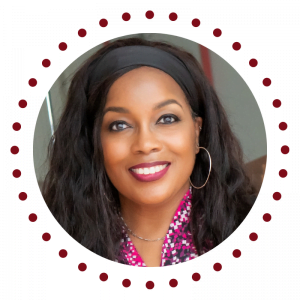
Want Karan to be Your Podcast Guest?
- Blended Workforces & the Gig Economy
- Critical Execution Tactics of High-performing Leaders
- Entrepreneurism & Leading Your Business

Want to be a Podcast Sponsor?
All sponsorships come with a featured spot on show notes pages.
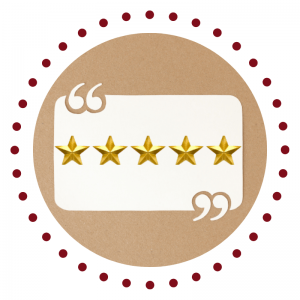
Like the Show? Please Leave a Review
If you like the show, it would mean the world to her if you left a quick review.
Your word is golden, so a HUGE thank you in advance!

#KeepInTouch
via our podcast alerts
Subscribe now to discover why thousands of monthly listeners who are passionate about doing their best work prioritize time each week to listen to the Blended Workforces @Work podcast.
#AboutSDL
#WhereToFindUs
MAILING
4480-H South Cobb Drive
PMB 219
Smyrna, GA 30080
PHYSICAL
2121 NewMarket Parkway
Ste. 108
Marietta, GA 30067
#ContactOptions
Customer Service Email:
service@shockinglydifferent.com
Call or Text:
770-384-1103
#Office Hours
MON-FRI
8:30 AM – 6:30 PM
Weekends By Appointment

